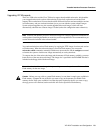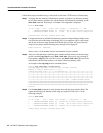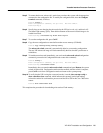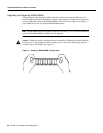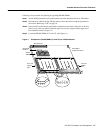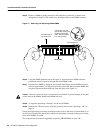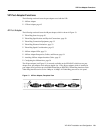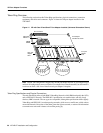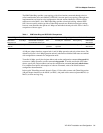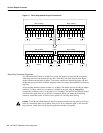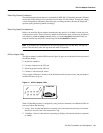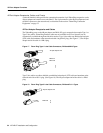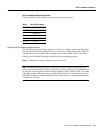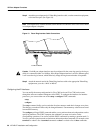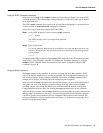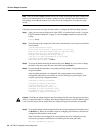
VIP-4R/4T Installation and Configuration 31
VIP Port Adapter Functions
The IBM Token Ring specifies a star topology, with all end stations connected through a device
called a multistation access unit (MSAU). IEEE 802.5 does not specify any topology, although most
implementations are based on a star configuration with end stations attached to a device called a
media access unit (MAU). Also, IBM Token Ring specifies twisted-pair cabling, whereas IEEE
802.5 does not specify media type. Most Token Ring networks use shielded twisted-pair cabling;
however, some networks that operate at 4 Mbps use unshielded twisted-pair cable. Table 1 shows a
comparison of the two types.
Table 1 IBM Token Ring and IEEE 802.5 Comparison
All 4R port adapter interfaces support both 4- and 16-Mbps operation and early token release. The
default for all ports is for 4-Mbps operation and early token release disabled. Both states are enabled
with configuration commands in Configuration mode.
To enable 16 Mbps, specify the slot/port address and use the configuration command ring-speed 16;
to return to 4 Mbps operation, use the command ring-speed 4. To enable and disable early token
release, specify the slot/port address and use the configuration command [no] early token release.
For complete descriptions and examples of software commands, refer to the related software
configuration documentation.
In the typical Token Ring network shown in Figure 15, lobe cables connect each Token Ring station
(4R port adapter interface) to the MSAU (or MAU), and patch cables connect adjacent MSAUs (or
MAUs) to form one large ring.
Network Type Data Rates Stations/ Segment Topology Media Signaling Access Method Encoding
IBM Token
Ring network
4, 16 Mbps 260 shielded twisted-pair
72 unshielded twisted-pair
Star Twisted-pair Baseband Token passing Differential
Manchester
IEEE 802.5
network
4, 16 Mbps 250 Not
specified
Not
specified
Baseband Token passing Differential
Manchester



